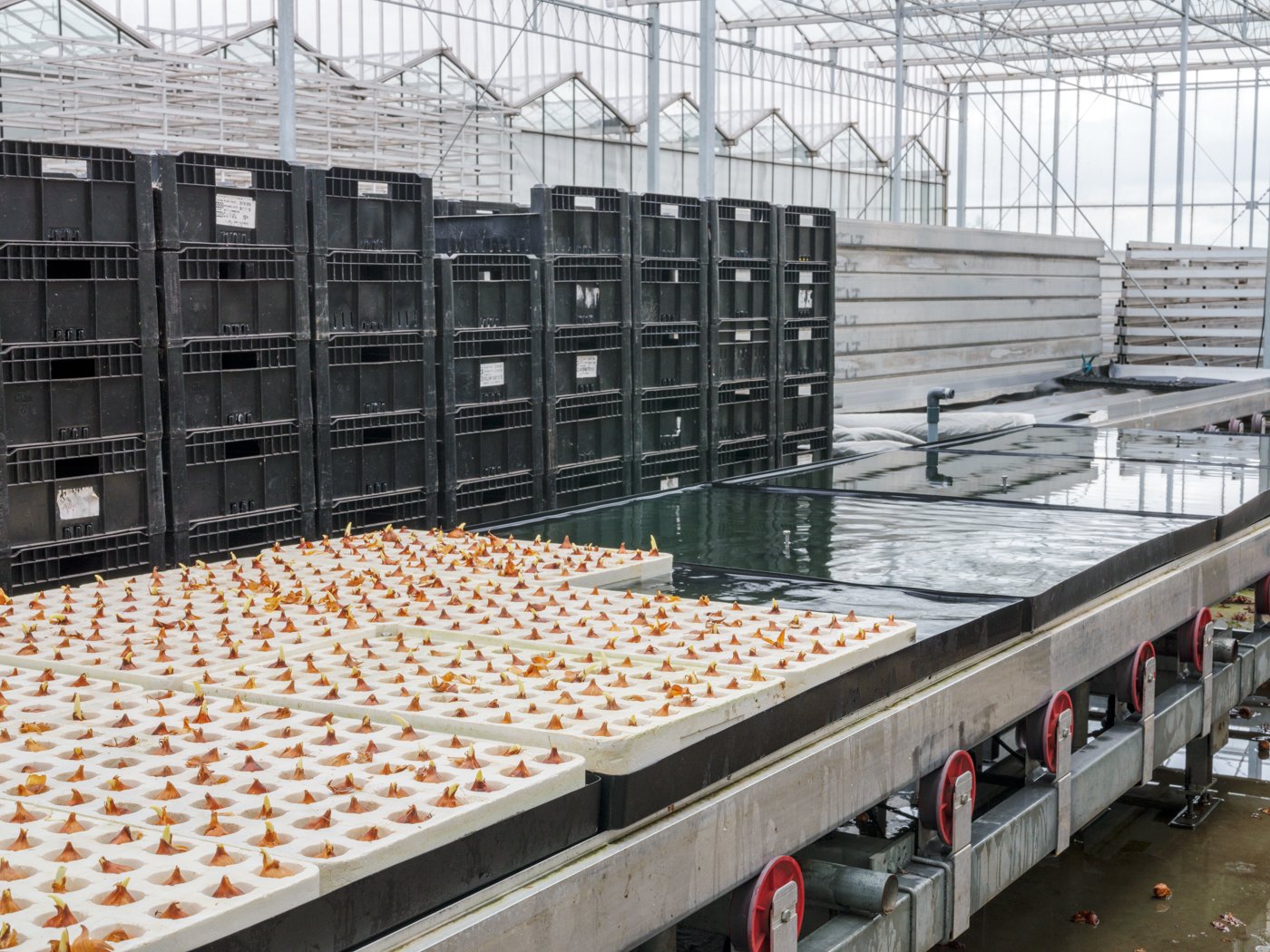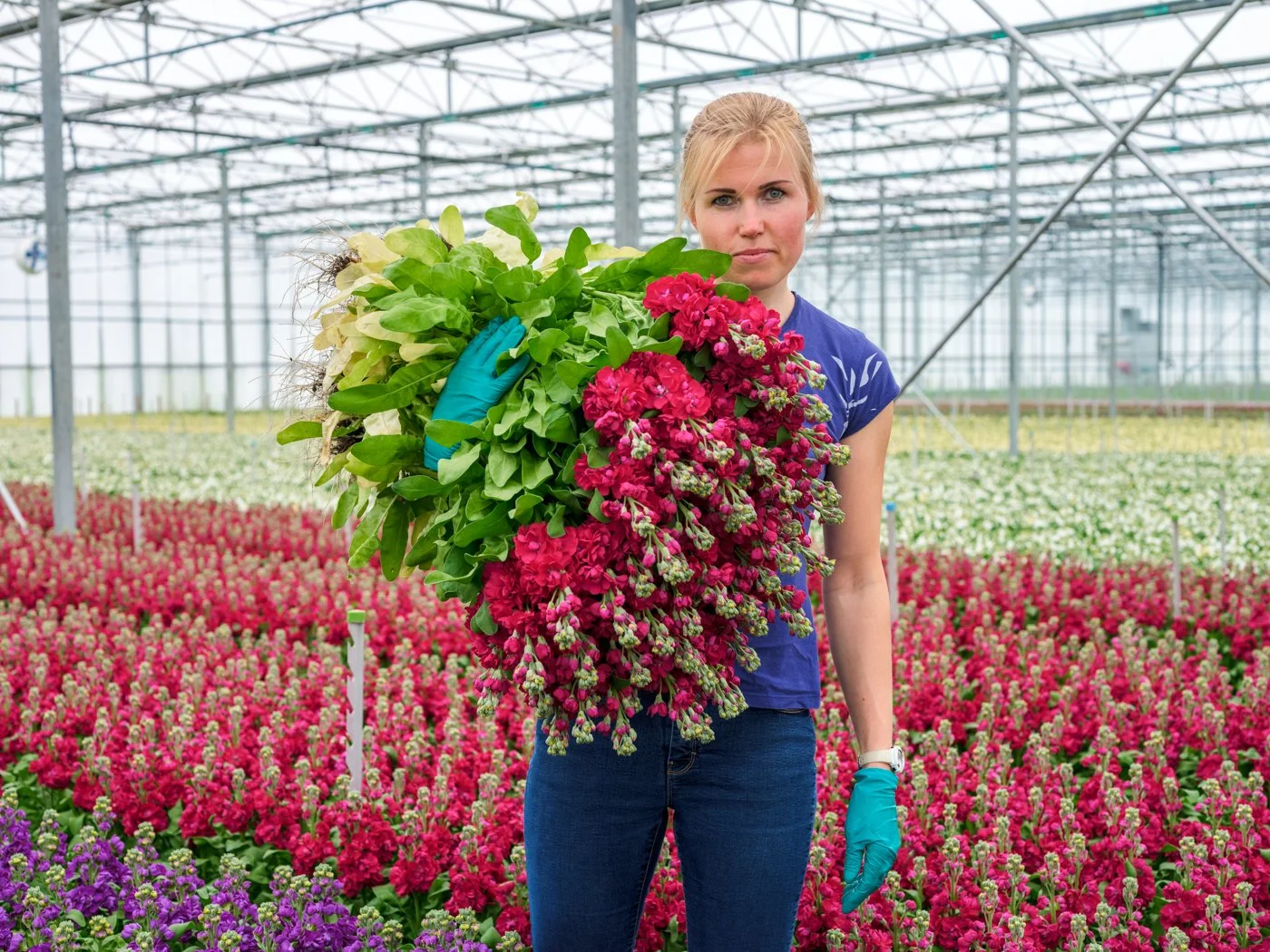We are a nation of farmers, of gardeners, of flower lovers and our cut flower industry is worth 2.2 billion pounds a year. Flower farms were once a familiar feature of the British countryside, but were gradually expunged by industrialised growing methods in the 19th century and then globalisation in the 20th. In the series The Flower Fields (commissioned by NEPN as part of Observe Experiment Archive) I worked with traditional Lincolnshire mixed rotation family farms and larger commercial flower growers around Spalding in Lincolnshire, one of the UK’s major cut flower growing regions, to explore how technology is changing how we grow flowers in this country.
These larger commercial growers mainly grow a handful of different flower varieties on an industrial scale, often supplying to the supermarkets. They are pioneering the use of various technologies such as hydroponics (the growing of bulbs in a nutrient-rich solution rather than soil) and improved efficiency by the use of automated lines and optical graders. The series is located in South Holland, a rural district in the south east of Lincolnshire where man drained, reclaimed and enclosed nearly three quarters of a million acres of fenland beginning in the 17th century. By the late 1800s flower bulbs produced both for cut flowers and for sale as a dried bulb were a well-established crop in the Spalding area.
For over 30 years, Tessa has photographed rural life, working closely with individuals and communities to investigate how the landscape is shaped by humans. From hill farmers near her home in North Yorkshire to Icelandic puffin hunters, from Finnish ice swimmers to Romanian nomadic shepherds, her projects reveal the fascinating intricacies of the dependencies between people, work and the land. FarmerFlorist was recently published by Another Place Press as part of their Field Notes series, and in early 2020 her exhibition ‘Otherwise Unseen’, bringing together four series which explore various rural communities in Europe and South East Asia was shown at the Side Gallery in Newcastle-Upon-Tyne, Britain’s only documentary photography gallery. She is currently working on Made out of Orchards commissioned by the Martin Parr Foundation and Going to the Sand, an ongoing personal project collaborating with Morecambe Bay fishermen both of which will be exhibited in 2022.
















